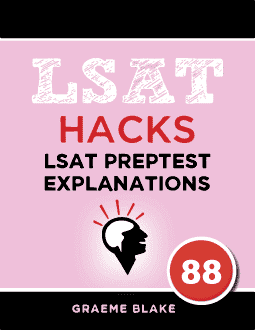QUESTION TEXT: People who have experienced a traumatic event but who did not…
QUESTION TYPE: Weaken
CONCLUSION: Experiencing a traumatic event can affect how much cortisol one produces responding to stress.
REASONING: People who’ve had traumatic experiences but didn’t develop PTSD have higher cortisol levels when exposed to stress than those who haven’t experienced trauma.
ANALYSIS: This is a correlation-causation flaw where the author thinks traumatic experiences caused/affected future cortisol-responses to stress. To weaken this, we need to find an alternative factor that explains this phenomenon, or something that suggests it’s a coincidence or the causation is reversed.
___________
- “Medical conditions” is too general. “Sometimes” is very weak. The conclusion says that trauma CAN affect cortisol levels; this answer choice also saying something can also happen doesn’t do a good job of weakening the conclusion.
- CORRECT. This gives an alternate explanation that reverses the causality. This says that these people already produce more cortisol when stressed and as a result, they don’t develop PTSD
- We don’t care about less severe instances of stress.
- This is out of scope. The stimulus doesn’t talk about treatments for PTSD and since these individuals in question don’t have actually have PTSD, this is irrelevant.
- This would actually strengthen the conclusion. It’s giving us an explanation for why there might be more cortisol produced.
Recap: The question begins with “People who have experienced a traumatic event but who did not”. It is a Weaken question. Learn more about LSAT Weaken questions in our guide to LSAT Logical Reasoning question types.


Leave a Reply